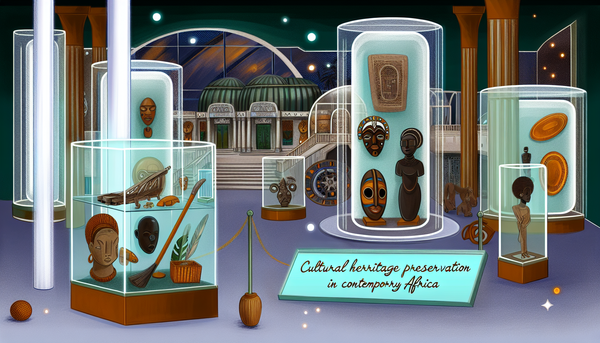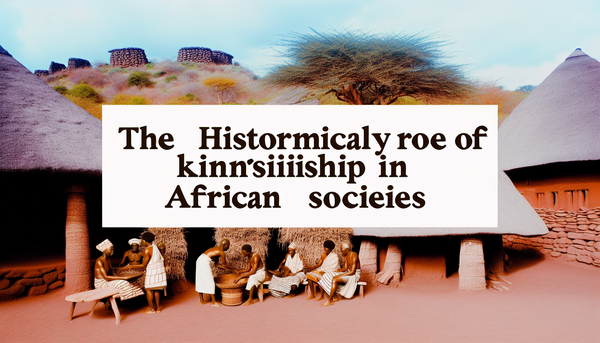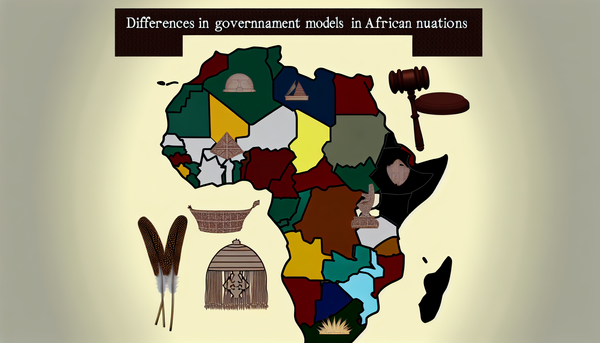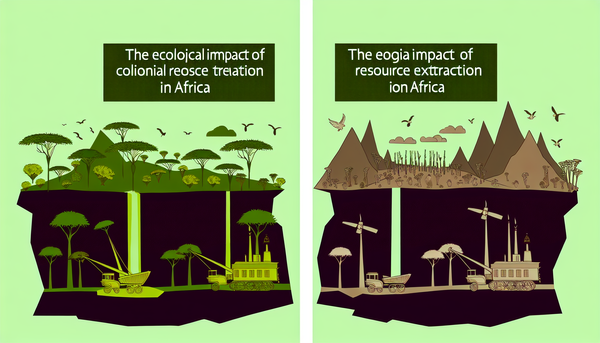Resources in Africa
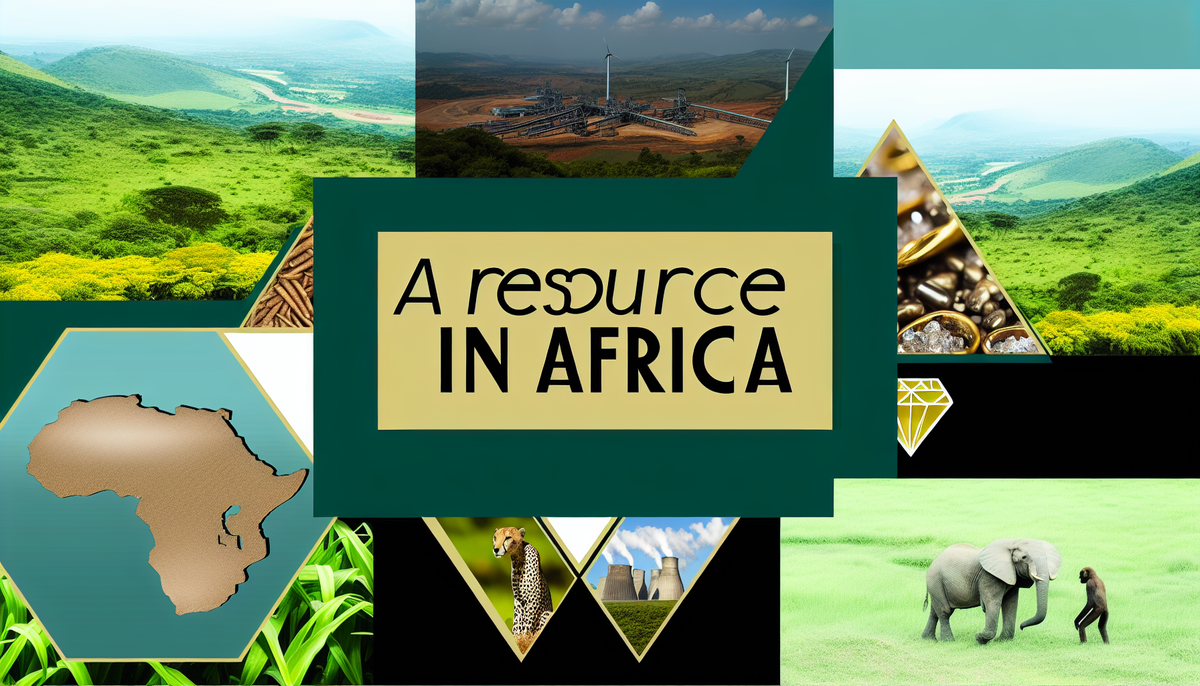
Introduction to Africa's Diverse Resources
Africa is often regarded as a continent rich in natural resources, playing a pivotal role in the global economy. Stretching from the Sahara in the north to the sub-Saharan regions, Africa boasts a remarkable array of resources, including minerals, agricultural products, and energy reserves. The continent is home to some of the world's largest deposits of critical minerals such as gold, diamond, cobalt, and platinum. Each of these resources contributes significantly to both local economies and international markets.
In addition to minerals, Africa's vast agricultural potential is a cornerstone of its resources. With diverse climates and ecosystems, the continent cultivates a wide range of crops, including coffee, cocoa, and maize, which are integral to global food supply chains. The fertile land and favorable growing conditions provide opportunities for sustainable agricultural practices, yet challenges such as climate change and soil degradation persist.
Moreover, Africa's energy reserves, particularly in oil, natural gas, and renewable energy sources, underscore the continent's potential in addressing global energy needs. As countries strive for economic development, the sustainable management and exploitation of these diverse resources will be essential for the continent's future. Understanding Africa's wealth of resources is crucial for fostering economic growth and improving the quality of life for its inhabitants.
Valuable Minerals and Their Geographical Locations
Africa is rich in valuable minerals, each concentrated in specific regions that contribute to the continent's economic landscape. South Africa is renowned for its abundance of precious metals, notably gold and platinum. The Witwatersrand Basin has historically been a gold mining hub, while the Bushveld Complex hosts vast reserves of platinum-group metals, essential for various industrial applications.
In the Democratic Republic of the Congo (DRC), cobalt is a key mineral, crucial for the production of rechargeable batteries and electronics. The DRC holds over 60% of the world's cobalt reserves, primarily extracted in the southern provinces. Additionally, the DRC is rich in other minerals, such as diamonds and copper, further enhancing its mining profile.
West Africa, particularly Ghana and Mali, also boasts significant gold deposits, often explored by multinational mining companies. These countries have emerged as leading gold producers, capitalizing on their geological formations rich in gold-bearing rocks.
East Africa, on the other hand, has gemstones like rubies and sapphires, with Tanzania's Mwanza region being famous for its high-quality tanzanite. As the demand for these minerals grows globally, Africa's diverse geological wealth continues to attract investment and innovation, driving economic development across the continent.
Agricultural Assets and Crop Varieties
Agriculture is a fundamental part of Africa's economy, employing a significant portion of the workforce and providing critical food security. The continent's diverse climates, ranging from tropical rainforests to arid deserts, allow for a wide range of agricultural activities. Key agricultural assets include fertile land, abundant water resources, and a variety of indigenous crop species that have been cultivated for generations.
Among the most important crops are staples like maize, rice, and cassava, which serve as dietary cornerstones for millions. Maize, particularly in Southern and Eastern Africa, is a primary food source and a significant cash crop. Rice has become increasingly vital in West Africa due to rising urbanization and changing dietary preferences.
Moreover, Africa is known for its unique cash crops, including cocoa, coffee, and tea, primarily produced in regions such as West Africa and East Africa. These crops not only contribute to local economies but also play a crucial role in global markets. Additionally, indigenous crops like millet and sorghum are vital for enhancing food resilience, especially in harsh climates.
As agricultural practices evolve, investing in research and technology can boost productivity and sustainability, ensuring that Africa's agricultural assets continue to thrive in a changing world.
Energy Reserves and Future Potential
Africa holds vast energy reserves that are pivotal for both regional development and the global energy landscape. The continent is rich in fossil fuels, particularly oil and natural gas, with significant reserves located in countries such as Nigeria, Angola, and Libya. Nigeria stands as Africa's largest oil producer, while natural gas reserves are notably abundant in Algeria and the DRC, creating opportunities for export and economic growth.
In recent years, there has been a growing emphasis on renewable energy sources to meet the continent's increasing energy demands sustainably. Countries like Kenya and South Africa are leading the charge in harnessing wind, solar, and geothermal energy. Kenya's Olkaria Geothermal Plant exemplifies the region's potential, tapping into geothermal resources to provide clean energy to millions.
The future potential for Africa's energy sector is promising, especially with international investments and support for renewable projects. The African Union's Agenda 2063 emphasizes the need for energy access, aiming to electrify communities and drive economic advancements. As the continent seeks to balance traditional energy production with sustainable practices, innovative technologies and policies will be essential for unlocking Africa's energy reserves and fostering a greener future. This dual approach not only addresses local needs but positions Africa as a leader in the global energy transition.
Water Resources and Conservation Challenges
Africa is endowed with substantial water resources, yet the continent faces significant challenges in managing and conserving these vital assets. Major rivers such as the Nile, Congo, and Zambezi are essential sources of freshwater, supporting agriculture, drinking water, and hydroelectric power. However, despite these resources, over 300 million Africans currently lack access to safe drinking water, exacerbating health and economic issues.
One of the primary challenges to water conservation in Africa is climate change. Erratic weather patterns, prolonged droughts, and increased evaporation rates threaten water supply and quality. For instance, the Lake Chad Basin, once a critical water resource, has shrunk dramatically due to climate variations and over-extraction, affecting millions who depend on it for their livelihood.
Additionally, rapid urbanization and population growth intensify pressure on existing water systems. Poor infrastructure, pollution, and inefficient agricultural practices further complicate the issue, leading to water scarcity in many regions.
To address these challenges, innovative solutions such as rainwater harvesting, sustainable irrigation practices, and effective water management policies are vital. Regional cooperation in transboundary water management can also enhance resilience against climate impacts. Ensuring sustainable water use is critical for fostering economic growth, improving health outcomes, and maintaining ecosystems across the continent.
Technological Advancements in Resource Extraction
Technological advancements are transforming resource extraction across Africa, enabling more efficient, sustainable, and safer practices in mining, agriculture, and energy sectors. In the mining industry, innovations such as automated machinery, real-time data analytics, and advanced drilling techniques have increased productivity while minimizing environmental impact. For instance, the use of drones for geological surveys and monitoring of mining sites provides valuable data that enhances decision-making and resource management.
In agriculture, precision farming is gaining traction, utilizing satellite imagery and IoT devices to optimize crop yields and resource use. This technology allows farmers to monitor soil health, manage irrigation systems more effectively, and apply fertilizers at precise rates, reducing waste and maximizing output.
The energy sector is also witnessing significant improvements, particularly in renewable energy. Solar technologies, such as photovoltaic systems and solar water pumps, are revolutionizing access to electricity in rural communities, contributing to greater energy autonomy. Moreover, advancements in battery storage technology are enhancing the reliability of renewable sources, making them more viable alternatives to fossil fuels.
As these technologies continue to evolve, they hold the promise of unlocking Africa's rich resources while fostering economic growth and sustainable development, ultimately improving the quality of life for millions across the continent.
Impact of Natural Resources on African Economies
Natural resources have a profound impact on the economies of African countries, shaping their growth trajectories and development prospects. The continent is blessed with a wealth of resources, including oil, minerals, and agricultural land, which contribute significantly to GDP and export revenues. For instance, oil-rich nations like Nigeria and Angola rely heavily on hydrocarbon exports, which can lead to economic booms but also bring volatility due to fluctuating global prices.
Minerals such as gold, copper, and diamond significantly boost national income, particularly in countries like South Africa and the Democratic Republic of the Congo. However, reliance on these commodities can introduce challenges, including the “resource curse,” where countries face slow economic growth, corruption, and environmental degradation.
Agricultural resources also play a vital role in many African economies, providing employment and sustenance. Countries like Kenya and Ethiopia capitalize on cash crops such as coffee and tea for export, contributing to foreign exchange earnings.
However, the management of these resources is critical. Investments in infrastructure, regulatory frameworks, and sustainable practices are essential to ensure that natural resource wealth translates into long-term economic benefits, social equity, and environmental conservation. As African nations navigate these complexities, responsible resource management will be key to unlocking their full economic potential.
